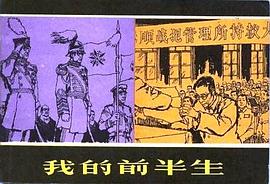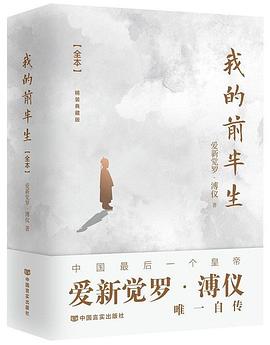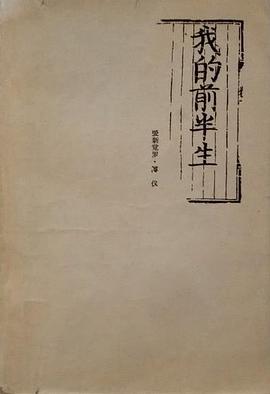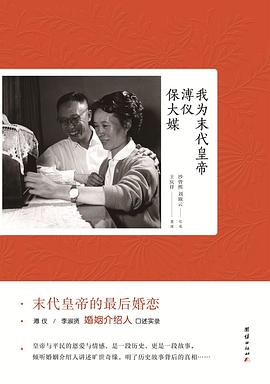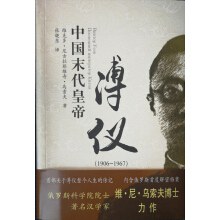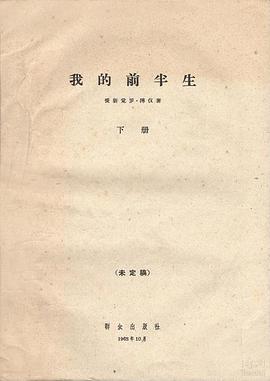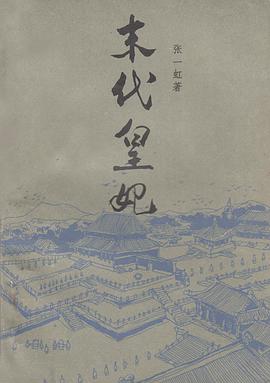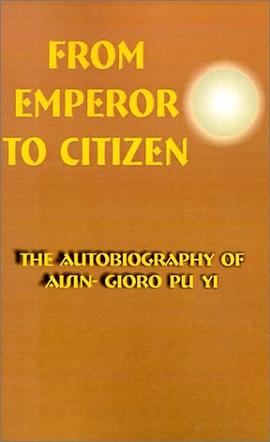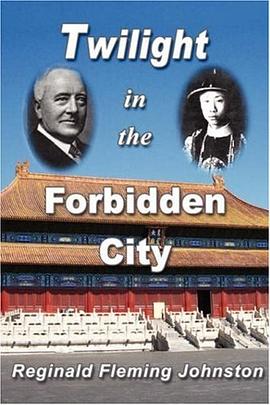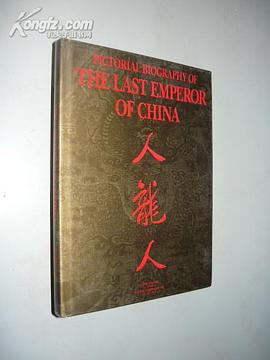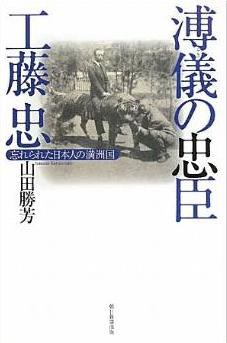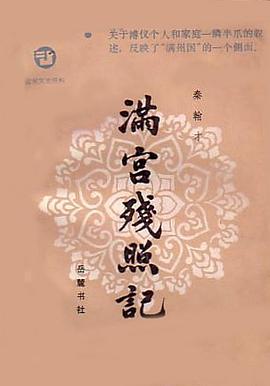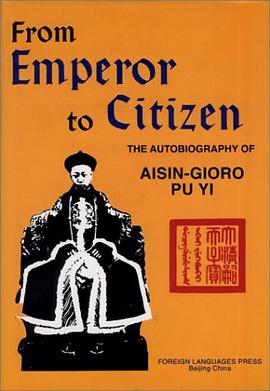

From Emperor to Citien is the
autobiography of Pu Yi, the man who
was the last emperor of China. A
unique memoir of the first half of the
20th century as seen through the eyes
of one born to be an absolute
monarch, the book begins with the
author's vivid account of the last,
decadent days of the Ching Dynasty,
and closes with an introspective
self-portrait of the last Ching emperor
transformed into a retiring scholar
and citizen of the People's Republic
of China.
In detailing the events of the fifty
years between his ascension to the
throne and the final period of his life
as a quiet-living resident of Beijing,
Pu Yi reveals himself to be first and
foremost a survivor, caught up in the
torrent of global power struggles and
world conflict that played itself out
on the Asian continent through many
decades of violence and upheaval.
This firsthand description of the
dramatic events of Pu Yi's life was the
basis for the intemationally acclaimed
1987 Bemardo Bertolucci film The
Last Emperor which was named Best
Picture of the Year by the American
Academy of Motion Picture Arts and
Sciences. From Emperor to Citizen
readily lends itself to cinematic
adaptation as a personal narrative of
continuously significant and revea-
ling episodes.
Becoming emperor and then
forced to abdicate with the
establishment of the Republic of
China in 1911, all before he is seven
years old, Pu Yi continues to live in
the Forbidden City for another
decade, still treated as the Son of
Heaven by the moribund Ching court,
but in reality a virtual prisoner, with
little genuine human contact apart
from his beloved nurse Mrs. Wang,
his teacher Chen Pao-shen and his
English tutor Reginald Johnston.
When at the age of nineteen Pu Yi
is finally forced to vacate his isolated
existence within the Forbidden City,
he begins his long odyssey as the
dependent of the occupying imperial
Japanese regime, first in Tientsin, and
eventually installed as "emperor" of
the Japanese puppet state styled
Manchukuo in China's northeast
provinces. With the defeat of Japan
and the end of the Second World War,
Pu Yi faces a very uncertain future as
he is shunted off to Russia for five
years before retuming to a new China
transformed by revolution, where he
is confined in the Fushun War
Criminal Prison. Here he undergoes
several years of rehabilitation,
"learning how to become a human
being," as he calls it, before receiving
an official pardon and being allowed
to finally live as an ordinary citizen of
Beijing.
This autobiography is the culmi-
nation of a unique and remarkable
life, told simply, directly and frankly
by a man whose circumstances and
experiences were like no other.
具體描述
讀後感
1溥仪祖母叶赫那拉•婉贞 慈禧太后的儿子同治去世之后,同治无子,慈禧便要了自己亲妹妹醇亲王福晋叶赫那拉婉贞与咸丰亲弟弟醇亲王的嫡子做了皇帝,即光绪。可惜光绪皇帝只是个傀儡皇帝。光绪只做了十几年傀儡皇帝,就在皇宫里暴卒。结果第二天慈禧又向自己的妹妹叶赫那拉婉...
評分我一直在想,溥仪到底有没有说真话。 这本书带有很强的传奇色彩,所以还是很吸引人的。但不得不说,溥仪的那些口号,那些批判,有着强烈的XX色彩。我们有理由相信,他在写作这本书的时候是处在某种压力之下,或者,带有自保的心理。 看溥仪这个人,本事没多少,但是非常善于权...
評分看了黄子华演的《非常公民》才去弄来这本书和他洋师傅庄士敦的《紫禁城的黄昏》。 很喜欢溥仪的老师陈宝琛先生。“他笑的时候,眼睛在老光镜片后面眯成一道线,一只手慢慢捋着雪白而稀疏的胡子”。 溥仪的毛笔字真的很漂亮呃。用自来水笔写的就一般般了。以前听老师说,毛笔...
評分 評分三岁稀里糊涂登了极,三年后慌里慌张退了位。1932开始做了十四年的满洲国皇帝,受尽了人本的摆布,名副其实的傀儡皇帝。日本战败投降,被苏联红军逮捕,在苏联关押了五年。1950年回国,1959年十年国庆大赦出狱,在中国的监狱里面又改造了10年。 有人认为作为一名末代皇帝,溥仪...
用戶評價
1.17-4.7,疫情期間英語學習。《我的前半生》英譯本,潘傢園買的。沒看過中文原版。兼學英語和曆史。跌宕起伏,悲劇人生,以及重新做人。在後半部分,一直懷疑一個人真的能被改造嗎?如果是真的,那我黨思想改造的本事太大瞭。如果是真的,那最後兩節讓人感動得想流淚——特赦和迴到北京,以及那個最後纔揭露的真相。
评分補記 好本子
评分很好的書。結閤末代皇帝這部電影來看。
评分北京書市淘的,大學時讀過中文版。舊書重讀似春潮,內容倒感覺像是新讀。最讓人春潮湧動的是在撫順,在哈爾濱監獄改造那段。飛龍不在天,也不再允許有飛龍的時候,方見人情,世味。但似乎又是昨日種種,都成今我的輪迴。不過終於還是remoulding過來瞭,thanks to magnanimousness。
评分1.17-4.7,疫情期間英語學習。《我的前半生》英譯本,潘傢園買的。沒看過中文原版。兼學英語和曆史。跌宕起伏,悲劇人生,以及重新做人。在後半部分,一直懷疑一個人真的能被改造嗎?如果是真的,那我黨思想改造的本事太大瞭。如果是真的,那最後兩節讓人感動得想流淚——特赦和迴到北京,以及那個最後纔揭露的真相。
相關圖書
本站所有內容均為互聯網搜索引擎提供的公開搜索信息,本站不存儲任何數據與內容,任何內容與數據均與本站無關,如有需要請聯繫相關搜索引擎包括但不限於百度,google,bing,sogou 等
© 2025 qciss.net All Rights Reserved. 小哈圖書下載中心 版权所有

